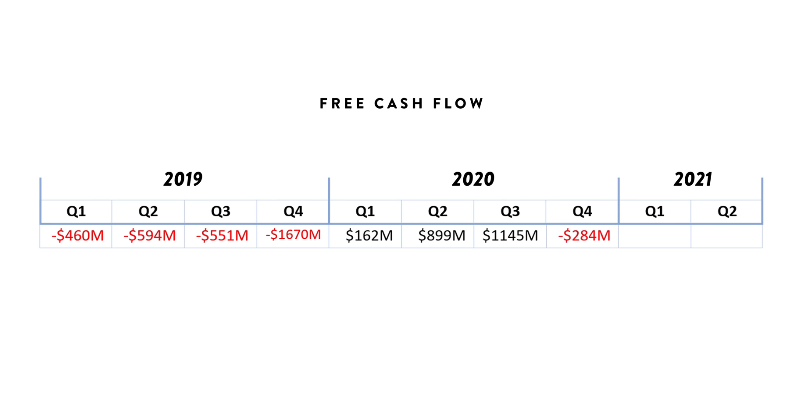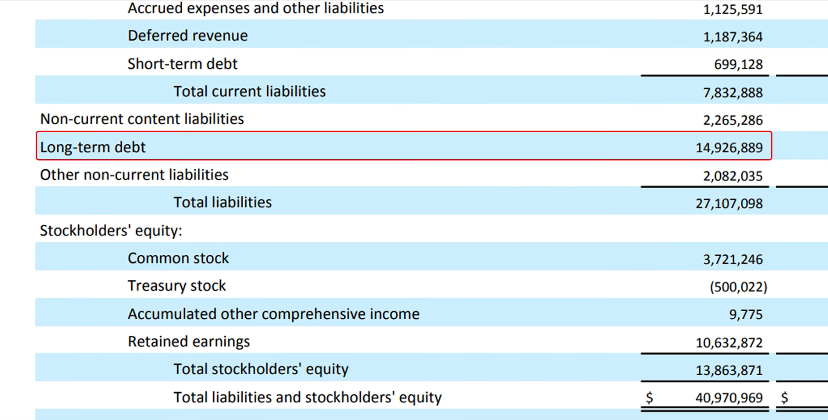When the pandemic started spreading in the first quarter of 2020, government officials all over the world shut down economic activity. As a result of the public health crisis caused by COVID-19, America’s economy appears to fall into recession. Yet, there are stocks the thrive despite the pandemic.
Now that lockdowns are getting lifted, vaccines are getting distributed, businesses are opening up, and the economy is starting to recover, there is a company that begins struggling with the world’s recuperation— Netflix.
Netflix received about 27.83 million subscriptions around the world in 2019— 9.60 million in the first quarter, 2.70million in the second, 6.77 million in the third, and 8.76 million in the fourth. In the following year, a lockdown was implemented in most countries, and people have no choice but to stay in their homes, having nothing else to do but watch television.
There was a surge in Netflix subscribers in 2020, especially in the first quarter of 2020, where Netflix adds 15.77 million subscribers. In the second quarter of 2020, Netflix added 10.09 million subscribers, 2.20 million on the third, and 8.51 million on the fourth.
Undoubtedly, Netflix found its golden years amidst the global crisis and became relevant to people’s day-to-day lives.

The image shows Netflix’s significant turnaround positive free cash flow between 2019 and 2020. It’s hard to think how the management should think that while they are making a good amount of money, the world is suffering from job loss and the economy is breaking into pieces.
As the world gets better, Netflix comes back to their humble number of subscribers addition in 2021. They had around 3.98 million subscribers added in the first quarter and only 1.54 million in the second quarter, which was way lower compared to the 10.09 million added subscribers in 2020.
The management of Netflix expected this to happen, though.
Back in July 2020, Netflix stated that the significant increase was because of the people who decided to buy the subscription because they have nothing else to do. And because of the sudden surge of people signing up, the company’s future growth will greatly be affected.
More than the number of subscriptions, the thing that needs more attention is the free cash flow.
Cash flow is very crucial to every investor because it is the “cash left” after capital expenditures and operating expenses. The management could pay dividends, buy back stock, add cash piles, and reduce debt using the free cash flow. However, no matter where the money gets allocated, the free cash flow is for the shareholders’ benefits.
If you look back at the cash flow, the most concerning part are it looked as though Netflix depended on a once-in-lifetime global lockdown just to make their cash flow positive. If people are stuck, can’t go out with their friends, can’t go to the malls, and their offices, then Netflix can make money.
Yet, if there will no longer be a lockdown and life come back to normal, then Netflix will no longer be relevant, and their cash flow will come back in red once again.
A consistent negative cash flow is concerning because it is a sign of debt.
Netflix needs money for the operation, so they borrow money that they can use. At some point, the borrowed money needs to be paid.

Netflix has about 15 million long-term debts. And although Netflix will surely do well in the long run, these debts need to be paid now. Debts are cheap at this point in time, and so they’re easy to get paid off.
If a company has a hefty amount of debt, and cannot consistently produce a positive cash flow, then it would face a really hard time in case unexpected things happen.
For instance, the company debt becomes overly expensive, or if investors are no longer willing to provide capital? This will not cause Netflix’s downfall, but as an investor, you should at least be aware of the company’s financial statements.
If you don’t read financial statements and analyze them, then you are violating Warren Buffet’s rule of not losing money in investing.
Every investor’s goal is to make money, but before actually thinking about the amount you would gain, you seriously need to check the business first to make sure that your money is in a safe place.
You need to understand the company’s status, its competitive advantage, and even its debts. Any issues relevant to these three things you should look out for could wipe out an investment.
Also pay attention to things like the company’s growth in revenues, the return on the capital, and current valuation vs. its intrinsic value as well. These things put the company forward, and so investors will surely make money.
Another example was airlines. Running an airline is very expensive, and so we can say that airline companies have a lot of debts. Yet, in years before 2020, instead of using their cash flow in order to pay their debts, they paid off a significant amount of money to buy their own stocks.
Perhaps, it’s not a good idea to buy their own stock with debts piling up, especially when there’s no guarantee that a global shut down of airlines would occur.

Netflix also did a 500-million buyback this 2021. As an investor, you should think twice if buy backing is the smartest move the company can make, especially when the against Disney and Prime Video is on.
Rival companies have spent billions in order to compete with Netflix. But although Disney connected to more than 100 million subscribers in March, Netflix is standing strong with a total of 207.6 million streaming customers by the end of March.
The life after the COVID-19 pandemic is surely not the doomsday for Netflix. However, Analysts project that more people will spend less time streaming as vaccinations spread across the globe.
Start watching how Netflix will respond once life comes back to normal, pay attention to their cash flow, and analyze carefully if Netflix really has a solid plan to sustain a free cash flow.
Any investment comes along with a certain risk, and as an investor, you should examine if the risk is worth taking or not.



